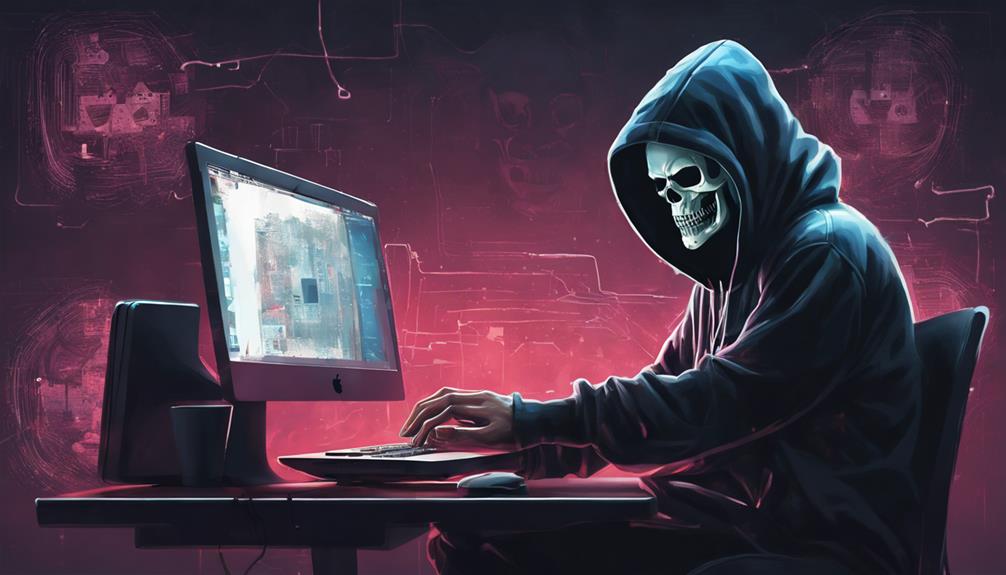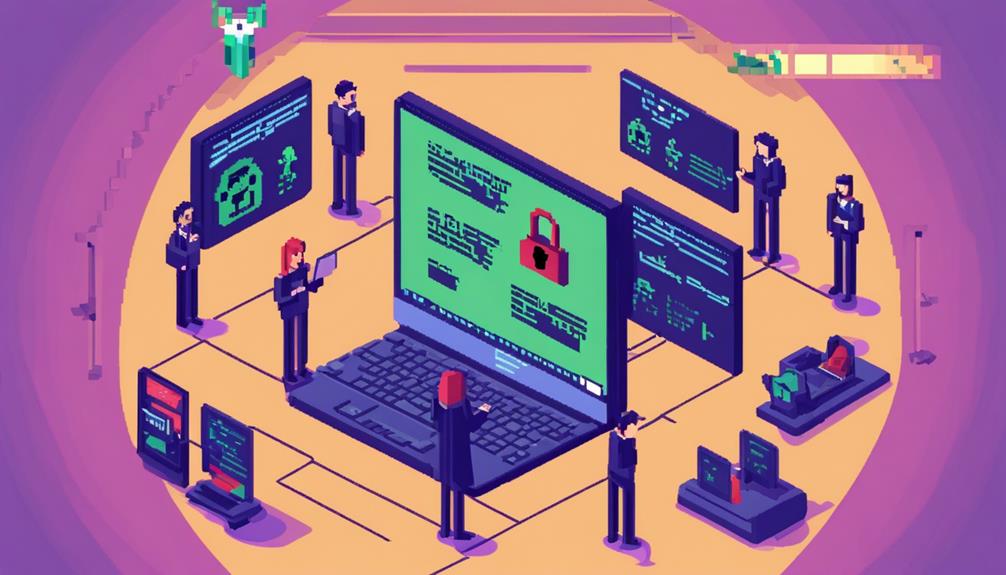To build an effective incident response team, you’ll need to define clear roles and responsibilities. Designate a team leader to oversee actions and coordinate communication. Include cybersecurity analysts and forensic experts for technical investigation, along with legal and compliance specialists to navigate regulations. A public relations representative will manage crisis communications. Each member’s expertise should align with your incident response plan for a swift, coordinated approach and further insights on refining this process await you.
Key Takeaways
- Designate a team leader to coordinate the incident response process and ensure effective communication among team members.
- Include cybersecurity analysts and forensic experts for technical investigation and incident mitigation.
- Engage legal and compliance experts to navigate regulations and manage potential legal risks during security incidents.
- Assign a public relations representative to handle stakeholder communication and protect the organization’s reputation during crises.
- Develop a clear, regularly updated incident response plan that incorporates lessons learned and evolving cybersecurity threats.

When a security incident strikes, having a well-prepared Incident Response Team (IRT) can make all the difference. You need to ensure your team is equipped with the right skills and knowledge to handle any situation effectively. Building your IRT starts with identifying the key roles necessary for a successful response. Each member should have specific responsibilities that align with their expertise, guaranteeing a swift and coordinated effort.
First, you’ll want to designate a team leader. This person will oversee the entire incident response process, coordinating between team members and external stakeholders. Their ability to maintain calm under pressure and facilitate effective team communication is essential. Next, you should identify members with technical expertise, including cybersecurity analysts and forensic experts. These individuals will investigate the incident, analyze data, and determine the root cause. Their proficiency in cybersecurity training is fundamental, as they’ll need to employ the latest tactics and tools to mitigate the threat.
Designate a strong team leader and skilled technical experts to ensure effective incident response and resolution.
Don’t overlook the importance of legal and compliance experts on your team. They’ll ensure that you adhere to regulations and help manage any potential legal ramifications of the incident. Having someone who understands the legal landscape can save you from costly mistakes down the line. Additionally, consider including a public relations representative. In today’s age, how you communicate with the public and your clients during a crisis can affect your organization’s reputation. This role focuses on crafting clear, concise messages that inform stakeholders about the incident and the steps being taken to address it.
To make your IRT effective, regular cybersecurity training is essential. Conducting drills and simulations will prepare your team for real-world scenarios, allowing them to practice their roles and refine their communication strategies. The more prepared they are, the more efficiently they’ll respond when an incident occurs. Encourage open lines of communication among team members, fostering an environment where everyone feels comfortable sharing insights and updates. This collaborative atmosphere will enhance your team’s overall performance.
Additionally, having team members who understand the latest tactics and tools is crucial for effective incident mitigation.
Finally, establish a clear incident response plan that outlines the steps to follow during an incident. This plan should be a living document that’s regularly updated based on lessons learned and changes in the cybersecurity landscape. By investing time and resources into building a strong IRT, you’ll be better positioned to handle security incidents effectively and protect your organization’s assets.
Frequently Asked Questions
How Often Should an Incident Response Team Conduct Training Exercises?
You should conduct incident response training exercises at least quarterly. Regular simulation drills keep your skills sharp and guarantee everyone knows their role during an incident. Team refreshers enhance communication and coordination, making your response more effective. Additionally, consider running ad-hoc exercises after significant changes in your environment or following a real incident. This approach helps maintain readiness and adaptability in an ever-evolving threat landscape, making sure your team’s effectiveness when it counts.
What Tools Are Essential for an Incident Response Team to Have?
An incident response team needs essential incident response tools like intrusion detection systems, forensic analysis software, and malware removal tools. You should also have cybersecurity software for threat monitoring and vulnerability management. These tools help you quickly identify, contain, and remediate incidents. Additionally, consider implementing a communication platform to coordinate effectively during an incident. Having the right tools guarantees your team can respond promptly and efficiently to any cybersecurity threats.
How Can We Measure the Effectiveness of Our Incident Response Team?
To measure your incident response team’s effectiveness, focus on performance metrics like mean time to detect (MTTD) and mean time to respond (MTTR). Research shows that organizations with a robust incident response plan can reduce costs by up to 30%. Implement feedback mechanisms, such as post-incident reviews and team debriefs, to identify strengths and weaknesses. By analyzing these metrics and gathering insights, you’ll continuously improve your team’s response capabilities.
What Qualifications Should Team Members Possess for Incident Response?
Your incident response team members should possess a mix of technical and soft skills. Look for individuals with incident response certifications like CISSP or CEH, which showcase their expertise. Additionally, they should have strong analytical skills, problem-solving abilities, and effective communication skills to collaborate under pressure. Confirm they’re familiar with the latest security threats and tools. A diverse skill set will enhance your team’s overall effectiveness in responding to incidents.
How Do We Ensure Clear Communication During an Incident Response?
When the chips are down, clear communication is essential during an incident response. Establishing communication protocols ahead of time keeps everyone on the same page. Make sure everyone knows the escalation procedures, so issues get addressed promptly and effectively. Regular training and drills help your team practice these protocols, ensuring they’re ready when an incident strikes. Remember, timely updates can prevent confusion and keep the response running smoothly.
Conclusion
In today’s digital landscape, having a dedicated incident response team is vital—research shows that organizations with a well-structured team can reduce incident recovery time by up to 50%. By clearly defining roles and responsibilities, you’re not just preparing for the unexpected; you’re also enhancing your organization’s resilience. So, take the time to build your team, equip them with the right tools, and watch as they transform potential crises into manageable challenges. Your future self will thank you!









